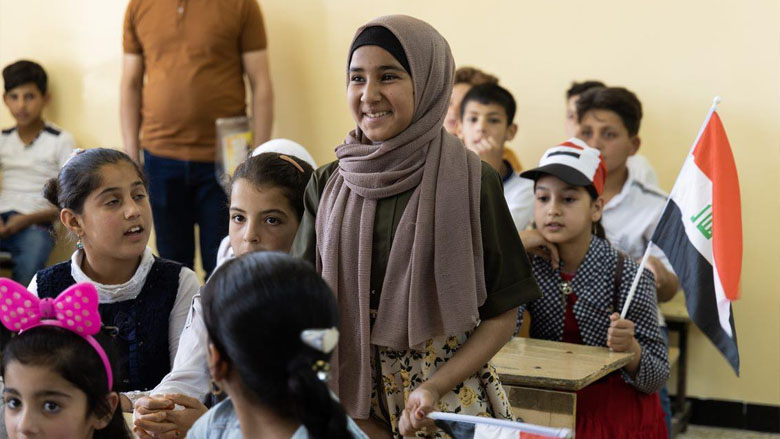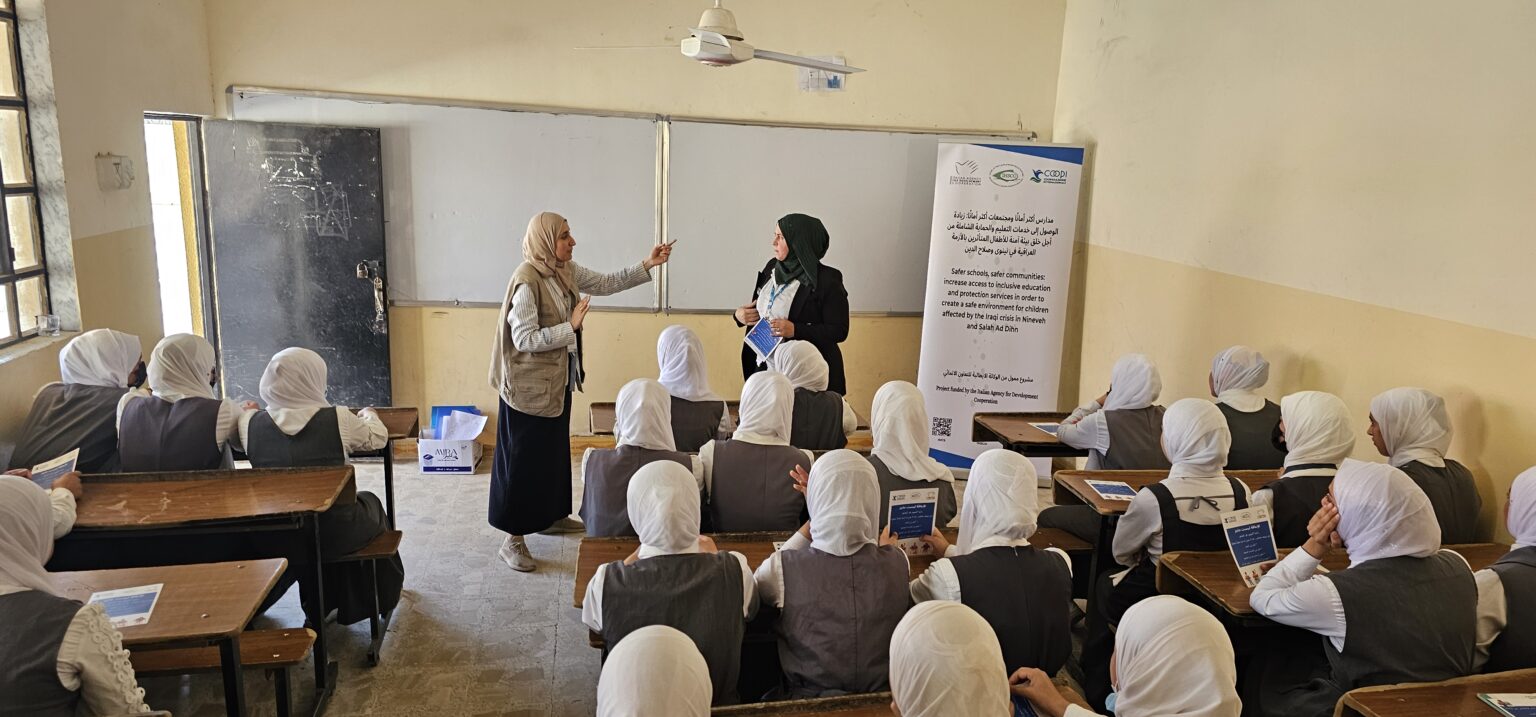Iraq is taking major steps to rebuild its education system and give every child a chance to learn. After years of conflict and instability, Rebuilds Schools the country’s schools were left them damaged, overcrowded, and underfunded. But now, with strong support from the World Bank and other partners, Iraq is focusing on improving the quality of education and making it accessible for all students.
Between 2020 and 2023, the Iraq Emergency Operation for Development Project (EODP) helped rebuild 26 schools in areas badly affected by conflict. These new schools are now serving more than 10,000 students, many of whom were previously studying in unsafe, temporary, or heavily overcrowded classrooms.
Fixing Iraq’s School Infrastructure
After years of war, Iraq’s school buildings were in a terrible state. Many schools had been destroyed, damaged, or were simply too small to meet the needs of local communities. In some areas, one school building was being shared by three different schools operating in shifts. Students could only attend classes for about four hours a day, making it hard to cover a full curriculum.
The Iraqi Ministry of Education has said the country needs at least 10,000 more school buildings to meet the needs of all its children. Without enough schools, many young Iraqis are at risk of falling behind or even dropping out completely.
The EODP is working hard to fix this issue. In eight governorates, the project built schools on public land so students would not have to travel long distances. The goal is not only to provide modern, safe learning spaces but also to eliminate the need for double or triple shifts, giving students a full day of learning.

Each new school includes classrooms, libraries, laboratories, and facilities for sports and activities. These improvements are designed to create a better environment where children can focus, learn, and thrive.
Strengthening Teacher Training
Building new schools is only one part of the solution. Iraq also needs well-trained teachers who can inspire and educate the next generation. Recognizing this, the project introduced an innovative teacher training program using a “cascade model.”
First, 95 master trainers were selected and given advanced training in areas like literacy, numeracy, classroom management, and psychosocial support for students. These master trainers then trained more than 5,000 teachers and counselors across the country.
The focus was not just on basic teaching skills but also on helping students deal with the trauma and stress many had faced due to years of violence and displacement. Teachers learned new ways to make classrooms more supportive, engaging, and effective for all learners.
This training took place in eight governorates, and early results show it has been very successful. The Ministry of Education is now considering expanding the program to more regions across Iraq.
Embracing Technology and Better Planning
Another big challenge facing Iraq’s education system is the lack of good data. Without reliable information, it is difficult for education leaders to plan new schools, assign teachers, or improve learning outcomes.
To address this, the project supported the Ministry of Education in setting up new digital tools and systems. A Mobile Data Collection platform was introduced, making it easier to track student enrollment, monitor school conditions, and plan where new schools and teachers are needed most.
This digital transformation will help Iraq build a stronger, more responsive education system over the long term. It will also help the government respond faster in future emergencies or crises.
Moving Toward a Knowledge-Based Society
All of these efforts fit into Iraq’s broader National Education Strategy for 2022–2031. This plan aims to make education more inclusive, improve quality at all levels, and lay the foundation for a modern, knowledge-based society.
Some key goals of the strategy include:
- Reducing school overcrowding and dropout rates.
- Strengthening early childhood education.
- Improving management and leadership within schools.
- Preparing students with the skills they need for the modern workforce.
The World Bank and other international organizations, including UNICEF and UNESCO, are working alongside Iraq to turn this vision into reality.
However, the road ahead is not easy. Iraq still faces major challenges, including a shortage of qualified teachers, outdated curricula, and limited funding. The country will need continuous investment and international support to make sure all students can learn and succeed.
Impact on Communities
The benefits of rebuilding schools and improving education are already visible at the community level. In many areas, new schools have become centers of hope and renewal.
One community member from Baghdad expressed deep gratitude for the changes, saying, “The reconstruction of the school is helping our children continue their education. It also helps people who were displaced by conflict return to their homes and rebuild their lives.”
Parents have reported feeling more confident about sending their children to school, knowing they are studying in safe and supportive environments. Children, too, have shown greater enthusiasm for learning, with many expressing excitement about their new classrooms, libraries, and sports facilities.
Looking Ahead
Iraq’s education system still has a long journey ahead, but the progress made so far is a strong sign of hope. By investing in both infrastructure and human capital, Iraq is taking real steps toward a brighter future.
More schools will need to be built. More teachers will need to be trained. And more communities will need to be engaged to make sure every child, in every part of the country, gets a fair chance at a quality education.
As Iraq rebuilds, education remains one of the most powerful tools for healing, growth, and future prosperity. The steps taken today are laying the foundation for a stronger, smarter Iraq for generations to come.
Iraq Explores Restoring Syrian Oil Export Pipeline to Mediterranean



